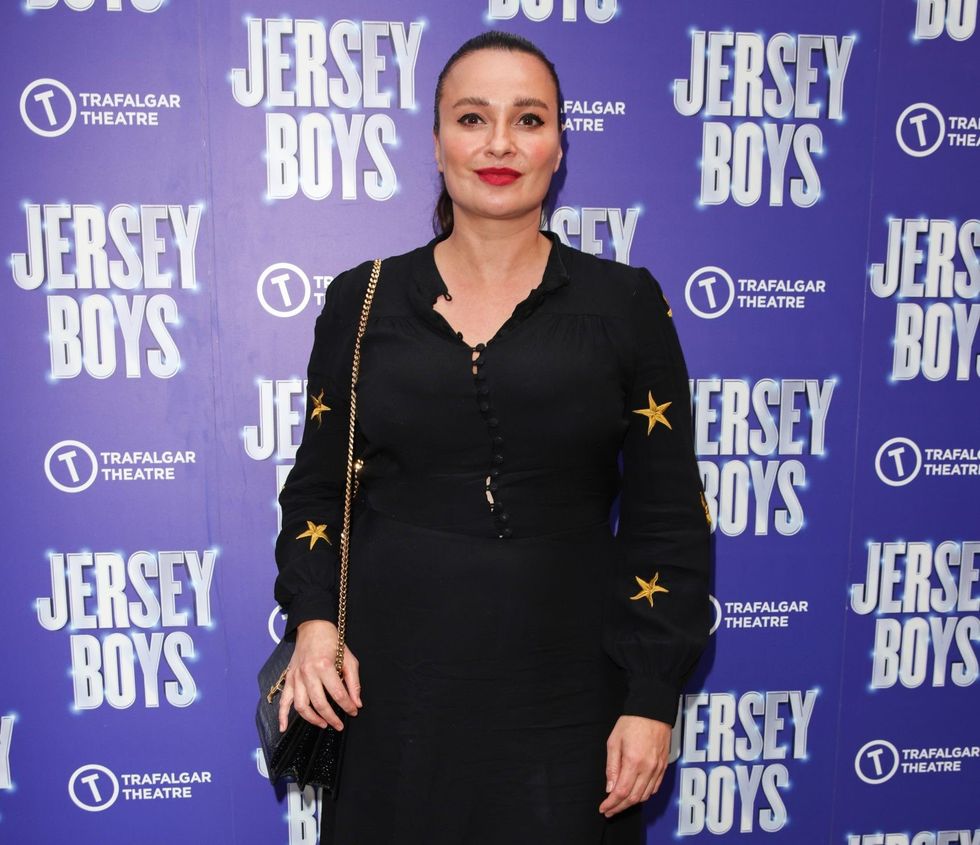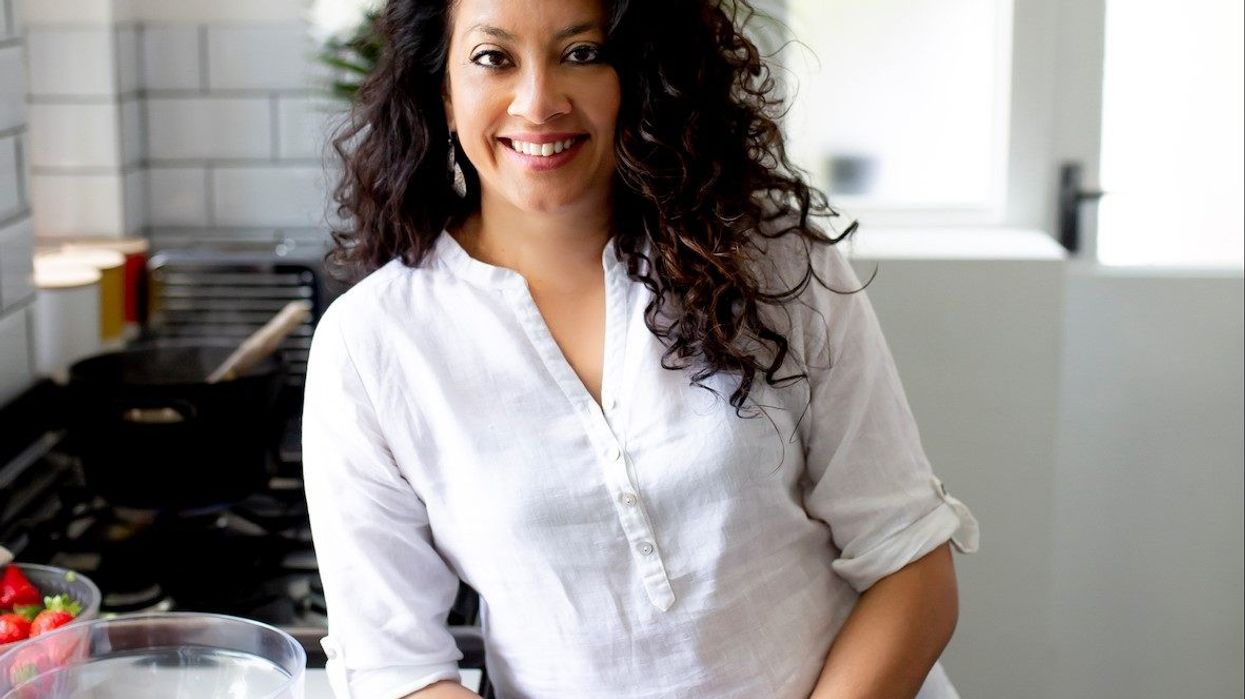Cookery writer Basu objects to Pakistani and Sri Lankan dishes being tagged as Indian cuisine
WHAT exactly is an Indian “curry”? Mallika Basu objected when celebrity chef Gizzi Erskine mixed up the cuisines of India, Pakistan and Sri Lanka under the catch-all heading of Indian “curry”.
Basu, who is herself a well-known cookery writer and a consultant to the food industry, explained why she had written a private message to Erskine, pointing out her errors.
Gizzi, who was opening her new restaurant, Love Café in Margate, Kent, told her 200,000 Instagram followers that to mark the occasion, she was “celebrating classic curries from all over India”.
According to the Daily Telegraph, which picked up on the exchanges between Basu and Erskine, “two chefs have become embroiled in a ‘cultural appropriation’ row after one promoted an ‘Indian’ curry night featuring Sri Lankan and Pakistani recipes. “Gizzi Erskine, the London-born television chef, sparked a backlash after promoting” the event at her new restaurant, the Telegraph said.
The paper pointed out that the attached menu for the evening “featured a Sri Lankan beetroot and coconut curry and tarka dhal. It had the attached note, ‘we’ve stolen the recipe from Tayyabs’, of Pakistani origin.
“This prompted an outcry from Indian chefs led by Mallika Basu, the cookbook writer, who accused Ms Erskine of culinary cultural appropriation including ‘reductive’ terminology.
“It prompted Ms Erskine, who has featured on ITV’s This Morning and Channel 4, to change the advert’s wording from ‘India’ to ‘Indian/Asian continent’ curries. This drew further criticism online as Ms Basu, who has featured on Jamie Oliver’s YouTube channel, wrote a widely shared Twitter thread, which did not name Ms Erskine. Many social media users questioned ‘what the heck the Indian/Asian continent was’.
“As the row escalated, Ms Erskine, 42, then edited the curry night’s advert on Instagram for a third time, this time simply to read ‘Asia’ dishes. Other meals listed included Goan pork vindaloo, described as ‘the real deal’, and saag aloo with pilau rice and naan bread, with recipes from her latest book Restore: A modern guide to sustainable eating.”
It maybe that a new generation of Britons have grown up believing curry to be as indigenous a dish as roast beef – an impression London-based Basu is anxious to correct.
Basu is the author of two well regarded books. The first, Miss Masala: Real Indian Cooking for Busy Living, was published in 2010 by HarperCollins, which described the author as a “cookery goddess and girl about town”. The book had “handy hints on how to cook a jalfrezi and still head to the bar an hour later without reeking of eau de curry”.
In 2018, Basu came out with her second book, Masala: Indian Cooking for Modern Living, which was published by Bloomsbury. On her differences with Erskine, Basu told Eastern Eye: “It was never meant to be a personal attack. I left a comment, saying I slid into your DMS (direct messages). I hope that the intel is useful. It was never my intention to name, shame or encourage bullying or trolling. It was done with the prime purpose of educating people. Someone like me gets bees in their bonnet about cultural appropriation and cultural insensitivity.”

Basu acknowledged Erskine was “a talented celebrity chef. She’s been on TV. She’s written some great books, she has been around a long time. She has lots of big national platforms supporting her. And that’s one of the reasons I felt it was important for her to make the clarification because she has a huge platform – 200,000 followers on Instagram plus lots of followers on Twitter. I expected her to just reply and say, ‘Thank you. I’m going to fix that now.’ But it didn’t quite go as expected.
“She had recipes for a curry night, featuring recipes from across India. And the menu had a recipe that she’d said she had stolen from Tayyab which is obviously not Indian – it’s a Pakistani restaurant. And then a Sri Lankan recipe. So I basically reached out to say, ‘Tayyab is Pakistani, and Sri Lanka is not in India, they’re two different nations. And if you’re going to bunch them all together, you’re probably better off saying ‘food of south Asia’. And I got quite a snarly response back, saying, ‘I am aware of that type of thing. And I’ve amended it,’ but when people make mistakes, they get defensive.”
Basu added, “I don’t have an issue with the word curry. There are curries from a lot of different nations, from Malaysia, from Thailand, from India, from all across Asia. That is not the issue here.
“The problem is when the word is used as a reductive term to describe the entire cuisine of a nation. Indian food is not curry. Those two things should not be used interchangeably. I think, unfortunately, what’s happening here is, first, the term has been used incorrectly to describe the food of India. And second, we’re not providing enough homage to what is actually curry. Because curry in Britain is British-born curry.”
She set out her views: “It is essentially the creative genius of British Bangladeshis. And it’s a very delicious kind of food, but Indian cooking, it is not. And I think you’ve got a double problem here, which is that, in this discussion about the word curry, we’re actually forgetting that huge numbers of Sylheti Bangladeshi cooks have made massive sacrifices and worked really hard. We mustn’t forget that British curry is distinctive. The annoyance for
Indians is that it’s often used as a blanket term that is generic and reductive. It’s a fine distinction, but it needs to be made. And the time is right.”
Basu emphasised: “I am not an activist, but I’ve been doing a lot of consulting on cultural appropriation and cultural sensitivity generally. But it’s been quite a tough thing to deal with.”
Her late grandfather, Jyoti Basu, was the Marxist chief minister of West Bengal from 1977 to 2000.




